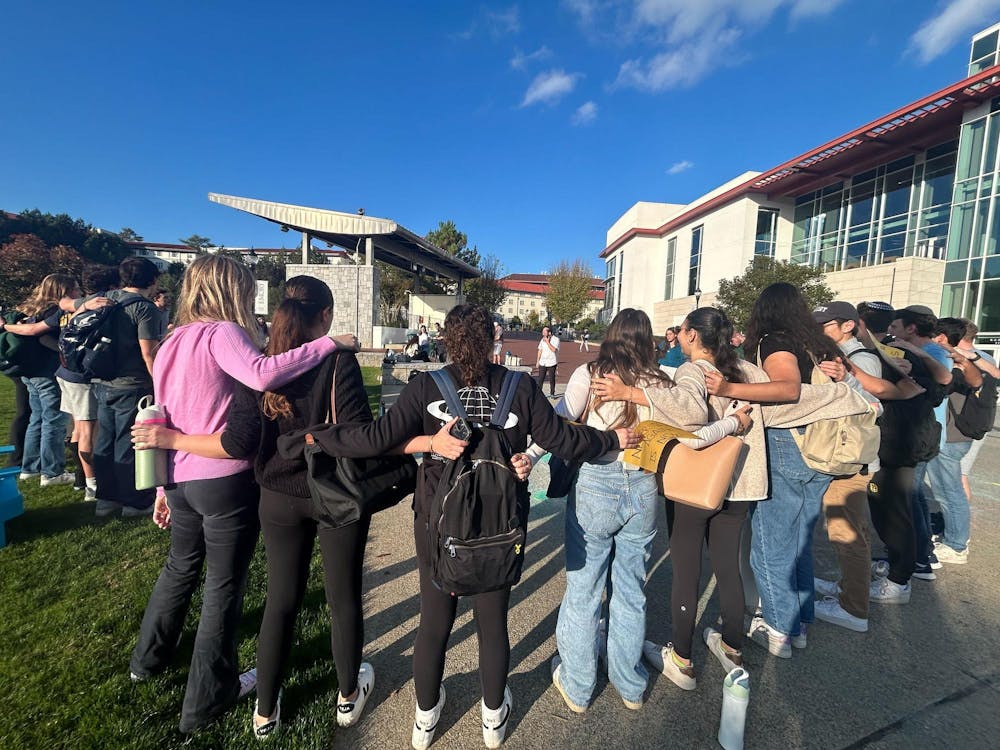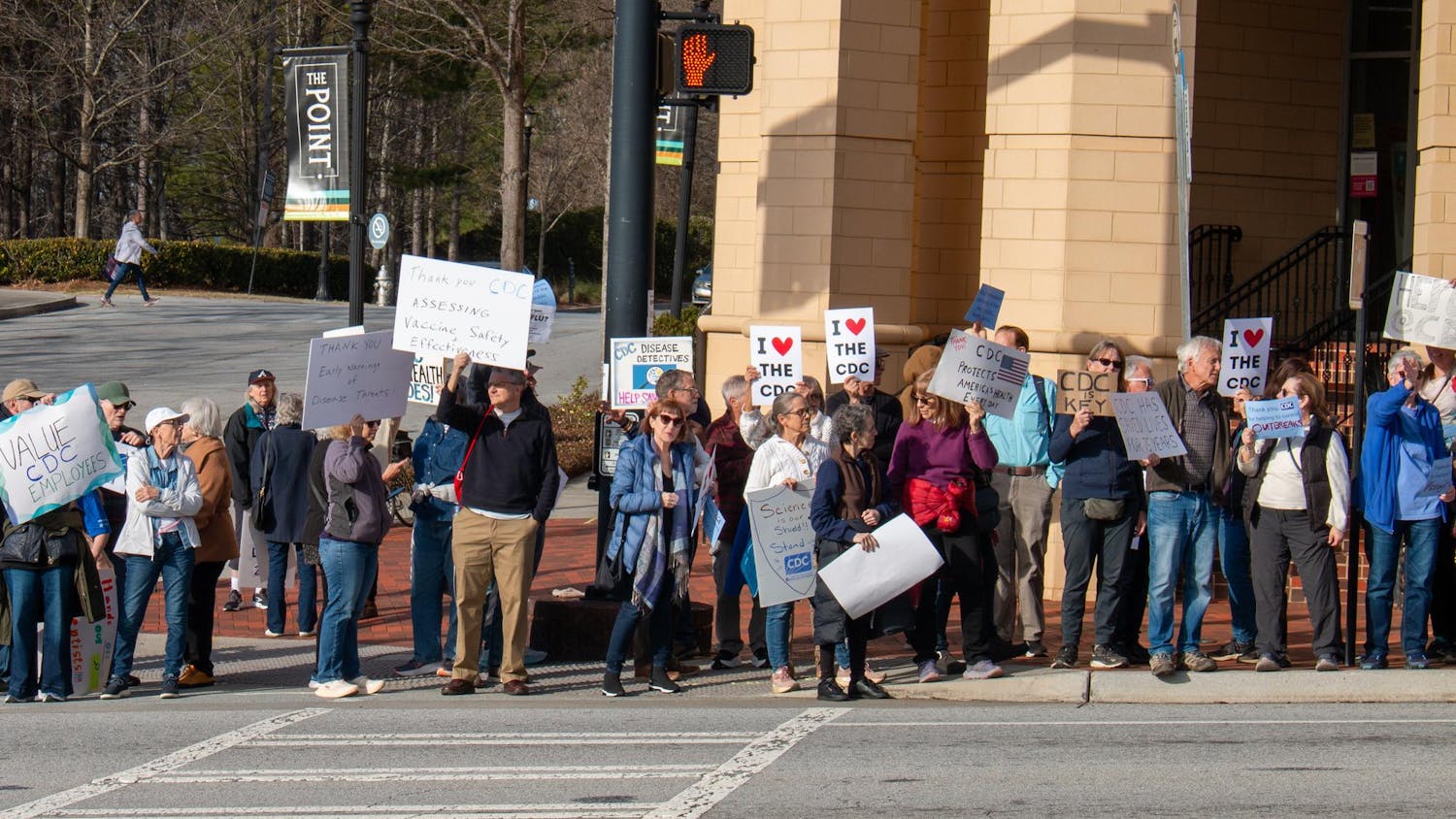After attacks on Israeli soccer fans in Amsterdam which left five people hospitalized and Israeli Prime Minister Benjamin Netanyahu condemned as antisemitic, about 30 members of Emory University’s Jewish community gathered to rally for the victims on Nov. 12 on McDonough Plaza. Emory Eagles for Israel hosted the event.
Hillel Israel Chair Zoe Teicher (27C) opened the rally by recounting the incident after the soccer match between Ajax and Maccabi Tel Aviv, in which she said Jewish fans were “harassed, chased by mobs and beaten.”
Teicher described the fear she felt, comparing the attacks to pogroms.
“Just yesterday, we commemorated Kristallnacht, the Night of Broken Glass, when mobs erupted across Nazi Germany and destroyed Jewish homes, businesses and synagogues,” Teicher said. “I grew up learning about Kristallnacht and the pogroms as a part of history, but never did I believe that we would be seeing pogroms in Europe again 85 years later.”
Pogroms were organized attacks against Jews that occurred in Eastern Europe in the 19th and 20th centuries.
“We can all agree that we never imagined the reality we're living in today,” Teicher said. “101 hostages are still being held by Hamas for more than 400 days, and pogroms are erupting in Europe again.”
Teicher told The Emory Wheel she helped organize the event to combat “hate with light.” She said she felt empowered creating a space for the Jewish community at Emory to stand against antisemitism.
“We are proud to be Jewish, and we want to spread our love,” Teicher said.
After Teicher spoke, Chabad at Emory Rabbi Zalman Lipskier led a group recitation of the Shema — a prayer that declares faith and affirms oneness in God.
In a speech before the prayer, Lipskier emphasized the importance of unity in the Jewish community.
“The only way forward is by continuing to build, gathering, sharing love,” Lipskier said
Rami Fabian (25B) shared similar sentiments, stressing the importance of community-building for Jewish students at Emory.
“Communities come together the most during the darkest times,” Fabian said. “Having events like these give the outlet for people who are hurting right now, who are struggling because a lot of Jews around the world are hurting and struggling.”







